Fewer Russian HNWIs hiding assets from authorities
In recent years, the number of Russian high net worth individuals (HNWIs) reporting their foreign accounts
Russian tax and foreign exchange residents are finding it increasingly difficult to hide their wealth abroad due to recent changes to the law on foreign exchange regulation, amendments to the Administrative Offences and Criminal Codes that introduced harsher penalties for the concealment of foreign accounts, as well as Russia joining
According to the survey, around 40% of Russian nationals with foreign bank accounts declared them to tax authorities after Russia joined the CRS MCAA, compared to 10% before.
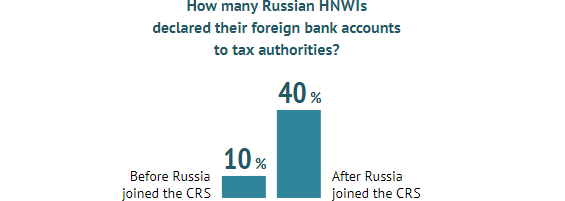
According to Tranio managing partner George Kachmazov, individuals who declare their foreign bank accounts usually open new accounts with a clear transaction history for such purposes. Previously owned accounts are closed, and the funds from them are transferred through back channels to avoid any connection between their old and new accounts.
What do Russian nationals who do not want to declare their foreign accounts do? According to a 2016 survey, 48% of the respondents said that such individuals would most likely change their tax residency, while in 2017, this figure increased to 78%.
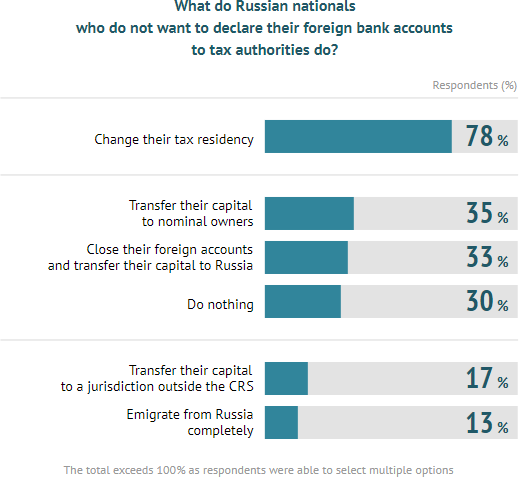
Among Russian nationals who change their tax residences, Cyprus (63%) and the United Kingdom (60%) are the most popular jurisdictions. Cyprus was also the top choice in 2016, with 41% of respondents mentioning the country. Monaco, Malta and Switzerland are also popular choices, with each country mentioned by around 30% of respondents. Other respondents named Andorra, Greece, Spain, Luxembourg, United Arab Emirates (UAE), United States (US) and Baltic countries, among other jurisdictions.
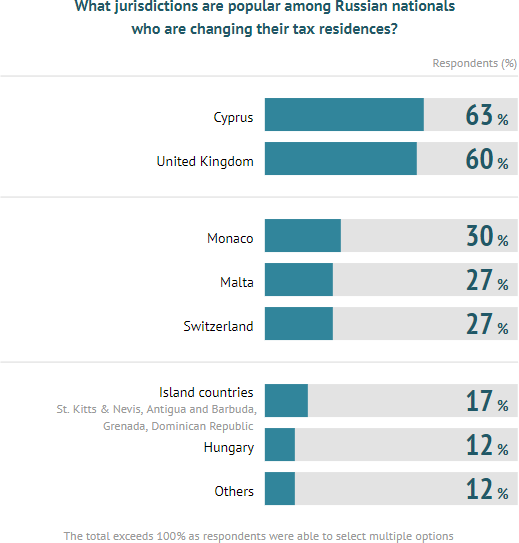
“The immense demand for the Cypriot investment programme is because of its simplicity”, Mr Kachmazov said. “For €2 million,
Among respondents, 35% stated that Russian nationals not wishing to reveal their accounts transfer their capital to nominal owners (24% in 2016). Most often, relatives, friends and other close associates act as the “nominal” owners (55%). Trusts are almost as popular (48%), while other categories of nominal owners were cited by less than
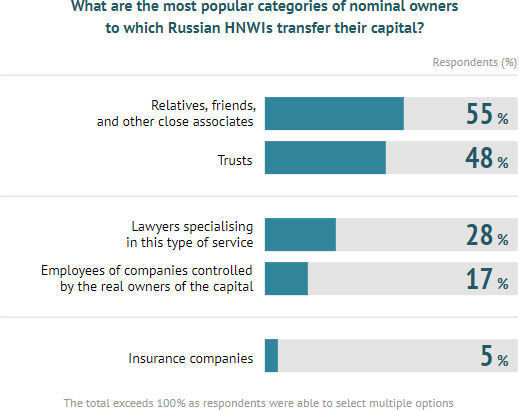
About
The most popular of such jurisdictions are the UAE and Singapore, which had not yet joined the CRS MCAA at the time of the survey. Even after joining the agreement in June 2017, Singapore plans on exchanging tax information only with jurisdictions that are able to guarantee the confidentiality of the information and prevent its misuse. Singapore authorities do not consider Russia to be one of these countries.
Many HNWIs also transfer their capital to the US (28% in 2017 and 15% in 2016). Mr Kachmazov said the US, which has effectively proposed lifting bank secrecy and leads the fight against the money laundering, has now become one of the major and
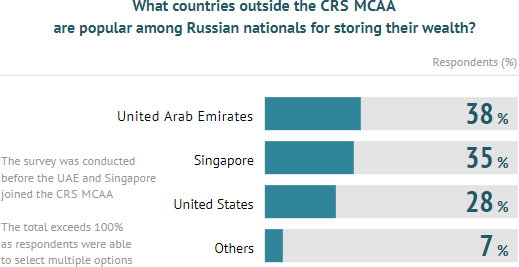
There are also owners of foreign accounts who do not plan on declaring them to tax authorities, but are not taking any actions either – 30% of the survey respondents chose this option in 2017, and 22% in 2016.
As for controlled foreign corporations (CFCs), according the survey
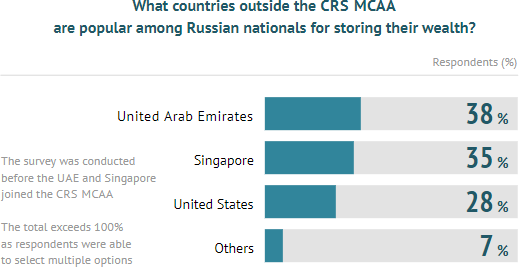
“Many clients currently believe that
Despite the fact that hiding foreign assets from Russian tax authorities is becoming riskier and increasingly difficult, results of the survey by Tranio and Adam Smith Conferences shows that more than half of Russian HNWIs are still not going to disclose information regarding their foreign bank accounts and companies. This is not only to avoid paying tax, but also due to their concerns that such information might fall into the hands of malefactors, which pose financial and personal security threats.
We will send you a content digest not more than once a week